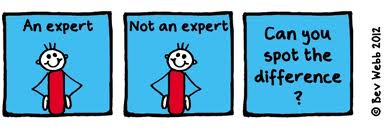Well, we’ve come to the end of 42 Days. Both our six-week North Point men’s study, as well as my 42 days of re-posting some of the things I written through the years.
It’s been kind of cool to look back and see what I was thinking over the past 17 years. I found myself being transported back into old joys and old pain that were both a little unexpected… sometimes wishing I could go back and relive the experiences because they were so good…and sometimes trying to ignore the old wounds that were reopened. Memory is such a funny thing.
So here’s my last post in this series. It’s probably the shortest. It’s also the one, more than any other one, that I hope you believe.
42 of 42.
There was a time when I was a little younger that I offered advice on parenting more freely than I do these days. Now that I’m completely on the back side of being a parent, it’s pretty easy to look back and see how much I didn’t know…and how far short I fell of being the kind of dad I wanted, and needed, to be.
(It’s possible my boys might see me a little differently than I see myself, because they would have a tough time seeing what I see and knowing what I know about myself…)
When my boys were young and really short, I wrote down goals for them…things I hoped they would learn, believe and become. I also had (and still have) goals for me as a dad, a husband, a pastor, a friend, and a follower of Christ. I still have those three sheets of paper (remember paper?) with the handwritten goals that have always meant everything to me.
If anybody is ever interested in what I’ve learned as a dad, I’m always willing to pass on what I know. But anymore, I usually wait until people ask, rather than dishing out unsolicited wisdom. Honestly, you gotta want it, if it’s going to do any good.
However, I thought I’d pass on the best piece of parenting advice I know…whether you want to know it or not:
BE THE PERSON YOU WANT YOUR KIDS TO BECOME.
It’s both that simple and that difficult. Expecting them to become something you’re not is hypocritical, unfair, and destined to fail. Kids are experts at sniffing out fake.
You have no guarantee of how your kids are going to turn out, no matter what the experts say. When they are young, your influence is great. As they grow into their teenage and college years, your words will not carry as much weight as they did in the early days…but your example will always be speaking.
Take care of yourself. Be the man or woman who God is calling you to be. Give your kids a consistent picture of what you hope they will become. No matter how old you or your kids are.
I promise you it will matter.
That, I know.










